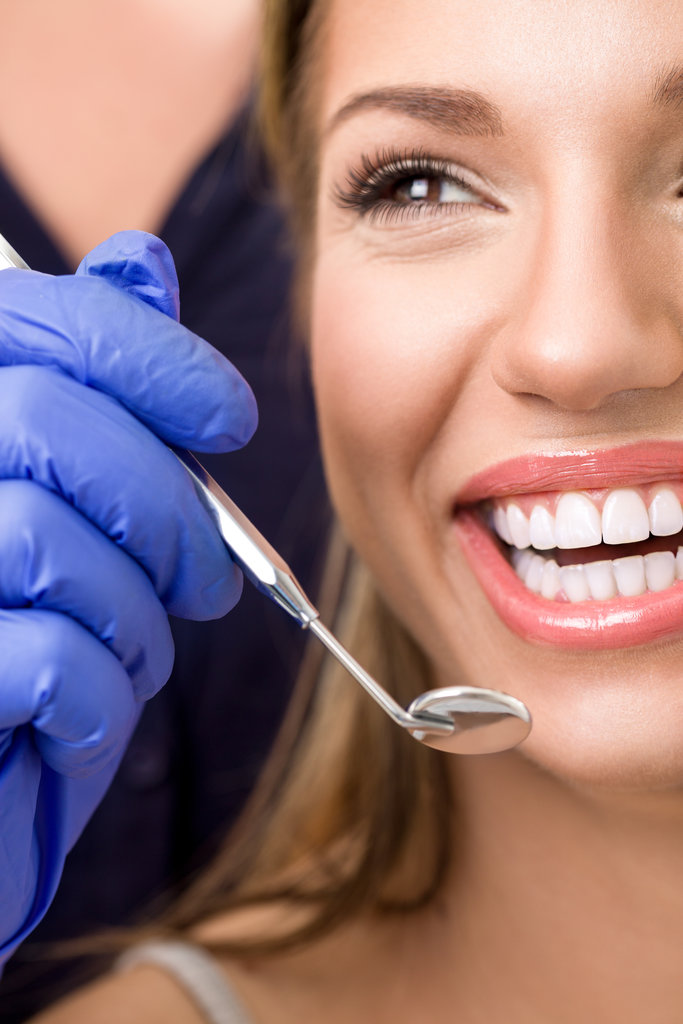Maintaining exemplary oral health can be a challenge. Ultimately, keeping your healthy teeth should be a joint effort between you and your preventive dentist. We strongly encourage our patients to understand the importance of general dentistry and the consequences of neglecting preventive dental care.

The Importance of Regular Dental Visits
Professional Teeth Cleaning
When you go in for a cleaning, professional teeth cleaning in Summerlin, NV, your dentist conducts a complete oral exam to identify the areas that need the most thorough care. For this reason, regular dental visits are fantastic ways to ensure optimally clean teeth. After your treatment, we will discuss better oral hygiene strategies and how you can maintain optimal oral health between appointments.
Limit the Extent of Damage from Unnoticed Health Conditions
Additionally, regular checkups with your preventive dentist can limit the effects of diseases before they take root. Pain is the last thing you’ll feel when something goes wrong in your body. Delayed pain sensation is the primary reason why certain oral health problems can worsen without care from a dentist.
Preventive dental services such as exams and X-rays help catch issues like tooth decay, gum disease, or even oral cancer in their earliest stages.
Our team of skilled professionals is solely focused on your dental health. From the moment you enter our office, you’ll notice how comfortable and inviting it is.
Flexible Payment Plans Available
Comprehensive dental treatments with flexible financing options to make quality care affordable for everyone.

Best Ways to Care for Your Teeth and Gums on Your Own
Brushing
While we all know to brush for two minutes twice a day, many individuals fail to do so. Improper brushing can lead to the accumulation of plaque, tartar, bacteria, and sugars. All of these substances attack and break down gums and teeth, increasing the risk of tooth decay.
Using fluoride toothpaste is one of the simplest ways to protect your tooth enamel and fight off harmful bacteria.
The best way to combat the accumulation of harmful agents is by brushing for two short minutes in the morning and at night. In the morning, you can ensure a clean, healthy smile. At night before bedtime, brushing will remove any gunk that has built up during meals and snacks. It also scrubs away alcohol that can dry your teeth.
However, brushing is about more than just how long you do it. Being too harsh can cause tooth enamel damage, and brushing too softly won’t do anything at all. For these reasons, many individuals have a difficult time brushing correctly, especially children.
Lastly, the toothbrush you choose can determine how effective your brushing can be. Bristles that are too firm can harm your gums, and soft-bristled brushes fail to provide the necessary scrubbing power. If you’re unsure about anything or have questions, it’s always best to contact our office. We’re happy to guide you toward proper oral hygiene tools and habits.
Flossing
Did you know food particles, plaque, and tartar can hide between teeth, just out of reach of brushes? This is why flossing daily is a critical step to improving your oral health.
According to the American Dental Association, flossing once daily can help prevent plaque buildup and reduce the risk of gum disease.
The Role of Preventive Dentistry
Preventive dentistry is about stopping dental problems before they start. It includes services like cleanings, exams, fluoride treatments, and education on oral hygiene. These practices play a crucial role in preserving your long-term oral health.
Preventive dental services are not only cost-effective but also essential in avoiding more extensive treatments down the road. Treatments like dental sealants can protect vulnerable molars in children and adults alike, reducing the risk of tooth decay significantly.
By focusing on preventive dental care, you reduce your risk for common issues like cavities, gingivitis, and even oral cancer.
Nutrition and Lifestyle
A balanced diet supports healthy teeth and gums. Avoiding sugary snacks and drinks can greatly reduce plaque buildup and keep your smile strong.
Additionally, poor habits like smoking or heavy alcohol use contribute to gum disease and oral cancer. Maintaining optimal oral health involves more than brushing—it requires lifestyle awareness.
Poor oral hygiene often stems from neglect or misinformation, so staying informed is key.
How Much Does Preventive Care Cost?
At our office, a routine cleaning and exam typically ranges from $250 to $400, depending on the depth of cleaning needed and any additional diagnostics. Regular preventative care is the cornerstone of a healthy smile and can help you avoid more costly treatments down the road.
Key Factors Affecting Preventive Care Costs:
- Frequency of Cleanings: Patients with a history of gum disease may need more frequent visits.
- X-rays and Imaging: Comprehensive exams may include digital X-rays or 3D imaging for a more complete view of your oral health.
- Personalized Care: Your overall oral health and specific needs can influence the cost.
- Insurance Coverage: Many insurance plans cover routine cleanings, but coverage can vary, so it’s a good idea to check your benefits.
We’re committed to helping you maintain a healthy smile, which is why we offer flexible financing options through our partnership with Alphaeon and CareCredit, as well as an in-office membership plan for those without insurance.
Preventive Care Starts with an Appointment
If comfortable, professional, expedient care interests you, why wait any longer to visit our dental practice? Preventive dentistry services at our office include digital X-rays, fluoride treatments, and tailored oral care plans—all aimed at protecting your smile.
We use the latest and greatest technology available, which further ensures your comfort and enhances your visit. Please fill out the patient forms and book your appointment today!
We’re here to help you protect your oral health through regular care, expert guidance, and compassionate service.
Frequently Asked Questions for Preventive Dentists in Las Vegas, NV
How often should I have preventative dental visits?
Most patients benefit from preventative visits every six months for cleanings and examinations. Patients with gum disease, high cavity risk, or certain medical conditions may need visits every 3-4 months. Those with excellent oral health and low risk factors might extend to annual visits. Children often need more frequent visits during development. Our Las Vegas team evaluates your individual risk factors and oral health status to recommend the optimal schedule for maintaining your dental health.
What happens during a preventative dental visit?
Preventative visits include professional cleaning to remove plaque and tartar, comprehensive examination of teeth and gums, oral cancer screening, and digital x-rays as needed. We check for cavities, gum disease, and other problems in early stages when treatment is simpler. We also provide fluoride treatments, discuss oral hygiene techniques, and offer dietary counseling. Our Las Vegas team takes time to educate patients about maintaining oral health between visits and answer questions about home care.
What are the early warning signs of dental problems?
Early warning signs include tooth sensitivity, bleeding gums when brushing or flossing, persistent bad breath, white spots on teeth, and minor toothaches. Gum recession, loose teeth, and changes in bite alignment also warrant attention. Many dental problems develop silently, which is why regular preventative visits are crucial for early detection. Our Las Vegas team teaches patients to recognize these signs and emphasizes the importance of prompt treatment to prevent minor issues from becoming major problems.
Is preventative dentistry covered by insurance?
Most dental insurance plans provide excellent coverage for preventative services including routine cleanings, examinations, and x-rays. Many plans cover preventative care at 100% with no deductible. Fluoride treatments and sealants may have age restrictions but are typically covered for children. Our Las Vegas practice accepts most major insurance plans including Delta Dental, MetLife, CIGNA, Teacher’s Health Trust, United Concordia, Anthem Blue Cross/Blue Shield, Humana, and Assurant. We verify coverage before treatment and work with patients to maximize their preventative benefits while coordinating care that fits their insurance and budget.
How does preventative dentistry save money in the long run?
Preventative dentistry saves significant money by avoiding expensive treatments for advanced dental problems. Regular cleanings and early detection prevent small cavities from becoming root canals or crowns. Gum disease treatment is more affordable in early stages than advanced periodontal therapy. Preventative care maintains teeth for life, avoiding costly replacements. Our Las Vegas practice demonstrates how preventative investment protects both your oral health and your wallet through comprehensive, affordable maintenance care.
Expert Preventative Dentistry in Las Vegas
Dr. Robert Chin and Dr. Jessica Pharar bring advanced training and extensive experience to every aspect of general dentistry. Dr. Pharar completed an Advanced Education in General Dentistry Program from Texas A&M, Baylor College of Dentistry, while Dr. Chin completed a General Practice Residency Program from the University of Rochester Medical Center, Eastman Institute for Oral Health. Their advanced knowledge allows them to provide comprehensive care with confidence and skill.
Both doctors remain committed to staying current with the latest innovations in dental care, ensuring you get the most effective and comfortable treatment options available. We invite you to experience the difference personalized, comprehensive general dentistry can make for your oral health. Contact us today at 702-445-7075 or schedule your appointment online to begin your path toward optimal oral health.
